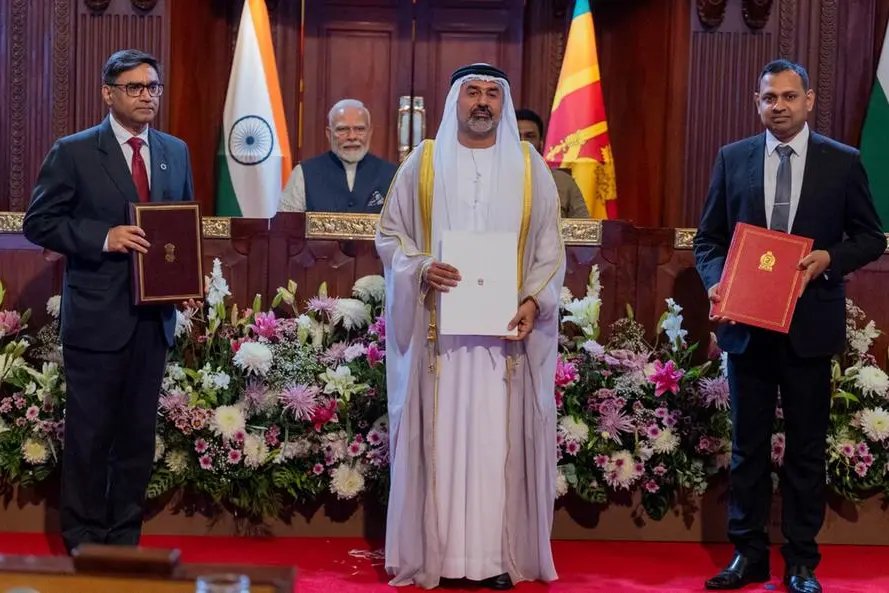The UAE, India, and Sri Lanka have signed a historic agreement to jointly develop Trincomalee, Sri Lanka, into a strategic energy hub. This trilateral Memorandum of Understanding (MoU) is set to enhance the region’s energy security while boosting economic and infrastructure growth.

The signing ceremony took place in Colombo, with Khaled Nasser AlAmeri, the UAE Ambassador to Sri Lanka; Santosh Jha, Indian High Commissioner to Sri Lanka; and Prof. K.T.M. Udayanga Hemapala, Secretary of Sri Lanka’s Ministry of Energy, formalising the deal. This collaborative framework signals a strong commitment to regional partnership and sustainable development.
Strategic Projects to Strengthen Energy Infrastructure
According to the agreement, the three nations will work together on several critical infrastructure initiatives. These include refurbishing the Trincomalee Tank Farm, developing a bunker fuel supply system, and exploring the construction of a new oil refinery. These projects aim to improve fuel storage, supply, and overall energy resilience across South Asia.
To drive implementation, each country has appointed an authorised agency. The UAE will be represented by Abu Dhabi Ports Group PJSC (AD Ports), while India will be represented by Indian Oil Corporation Limited (IOCL). Sri Lanka’s Ceylon Petroleum Corporation (CPC) completes the trio. Together, these agencies will form a joint venture company to manage project execution and ensure alignment across the board.
In addition to on-site developments, the MoU includes plans for a bi-directional petroleum pipeline between India and Sri Lanka. This pipeline will not only enhance regional logistics but also strengthen long-term energy connectivity and reliability.
Driving Regional Cooperation and Economic Growth
Mohamed Hassan Alsuwaidi, UAE Minister of Investment, highlighted the significance of this agreement. He stated that the MoU reflects the UAE’s ongoing commitment to regional diplomacy and resilient economic development. Through this partnership, the UAE aims to unlock Trincomalee’s potential as a vital energy and logistics gateway for South Asia.
India’s Foreign Secretary, Vikram Misri, echoed this sentiment. He described the agreement as a major step that deepens the strategic nature of the India-UAE relationship and reinforces their growing partnership with Sri Lanka.
This agreement illustrates the growing momentum behind collaborative energy infrastructure development in the region. By combining resources and expertise, the UAE, India, and Sri Lanka are laying the foundation for long-term prosperity, regional stability, and enhanced energy security.


